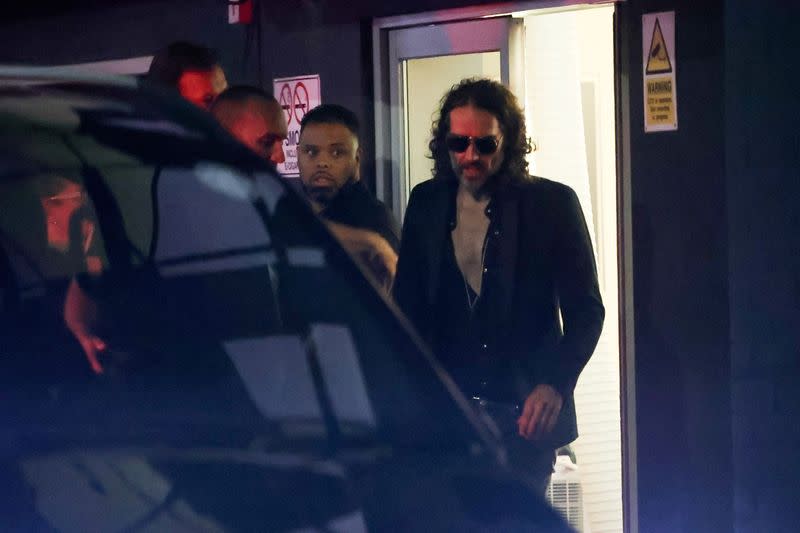Rumble rejects UK lawmakers' call to stop Russell Brand monetisation

LONDON (Reuters) - Online video site Rumble has hit back at concerns raised by British lawmakers about Russell Brand's ability to make money on its site after the comedian and actor was accused of a string of sexual assaults.
Brand used the Canadian-based platform, where he has 1.42 million followers, to deny the allegations on Saturday, saying he had never had non-consensual sex.
Youtube said on Tuesday it had blocked him from making money from his channel on the site, which has 6.6 million subscribers.
Lawmaker Caroline Dinenage, chair of parliament's Culture, Media and Sport Committee, asked Rumble's Chief Executive Chris Pavlovski in a letter if Brand was able to monetise his content on the site, including his videos relating to the accusations.
"If so, we would like to know whether Rumble intends to join YouTube in suspending Mr Brand's ability to earn money on the platform?" she said.
Pavlovski called the letter "extremely disturbing", and said it was "deeply inappropriate and dangerous that the UK parliament would attempt to control who is allowed to speak on our platform or to earn a living from doing so".
"Although it may be politically and socially easier for Rumble to join a cancel culture mob, doing so would be a violation of our company's values and mission," he said in a statement published on X, formerly known as Twitter, late on Wednesday.
"We emphatically reject the UK parliament's demands."
The Sunday Times newspaper and Channel 4 TV's documentary show "Dispatches" reported on Saturday that four women had accused the 48-year-old of sexual assaults, including a rape, between 2006 and 2013.
London police said on Monday they had received an allegation of sexual assault dating from 2003.
YouTube, owned by Google parent Alphabet Inc, said Brand had violated its creator responsibility policy.
"If a creator's off-platform behaviour harms our users, employees or ecosystem, we take action to protect the community," a YouTube spokesperson said.
(Reporting by Paul Sandle; Editing by Andrew Cawthorne)

 Yahoo News
Yahoo News 
